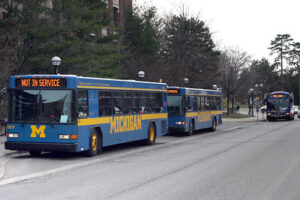The deadline to apply for free community college tuition under the state’s Futures for Frontliners program is approaching. The application window closes on December 31, 2020 at 11:59 p.m. The program provides an obvious opportunity for frontline workers, but it also offers an opportunity for community colleges.
The funding will enable Michigan’s two-year institutions to demonstrate the value (and viability) of a broader free community college strategy. To date, more than 100,000 people have applied to the program. About 60% of the early applicants qualified for the benefit, based on program rules. For applicants who don’t qualify for program funding, the State of Michigan has designed other assistance programs that may still help frontline workers enroll in college programs.
The Futures for Frontliners program is the state’s broadest attempt to provide a free post-secondary education to qualified students. The program will likely approve somewhere between 60,000-70,000 applicants. That approval guarantees free in-district tuition and payment of mandatory fees and contact-hour fees. However, students may still have some out-of-pocket costs. These include books, lab fees, graduation costs and also non-mandatory fees.
Community colleges shouldn’t look at this as a slug of “free money” offered at an opportune moment. If this works, it could persuade the Legislature to open the door for more funding for Michigan residents who want to earn a two-year degree. But only if the community colleges produce well-educated graduates who can enter Michigan’s workforce.
If community colleges can’t produce well-educated, well-trained graduates in fields that Michigan’s economy needs, the Legislature will see the program as a dismal failure and a huge waste of badly needed money. Worse, it will forever close the door to free college opportunities for future participants.
The bigger fish behind the Frontliners
The onus is now on Michigan’s community colleges to deliver on the promise of occupational, technical and transfer education. They must provide high-quality academic advising and identify and eliminate barriers that prevent students from succeeding. The truest value test- gainful employment and enhanced earning potential – comes after the Frontliners graduate.
There’s a bigger fish behind this program. Futures for Frontliners could pave the way for a larger cohort of Michigan residents to take advantage of the promise of free college. But only if Michigan’s community colleges do everything in their power to ensure that the Frontliners succeed in their educational pursuits.
Photo Credit: David Brossard, via Flickr
























